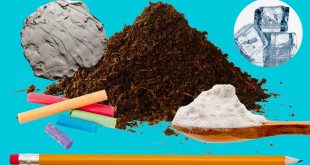 They should be used for everyone.
They should be used for everyone.
To the heart and arteries were in great shape, you must first take care of your diet. And it would be good to know which vitamins and minerals are most useful for the cardiovascular system.
1. Antioxidants – substances for fighting free radicals.
Vitamin C – boosts immunity, strengthens the nervous system and blood vessels, thins the blood, reduces “bad” cholesterol.
Daily dose: 75-90 mg.
Sources of vitamin C: oranges, lemons, strawberries, black currants, kiwi, rose hips, green onions, sea buckthorn.
Vitamin a – helps to strengthen the walls of blood vessels, regulates cholesterol.
Daily dose: 2600-3300 ME.
Sources of vitamin A: red, yellow, and orange vegetables and fruits.
Vitamin E – reduces blood viscosity, increases the level of good cholesterol, improves the condition of blood vessels, normalizes heart rate. It is recommended to take together with selenium.
When taking certain heart drugs (anticoagulants) should adjust the dose with your doctor.
Daily dose: 8-10 mg
Sources of vitamin E: wheat germ, oily fish, eggs, green vegetables, avocado.
Selenium – has a marked antioxidant effect in combination with vitamin E.
The daily dose of selenium: 30-70 mcg.
Sources of selenium: eggs, liver, fish, seafood, onion, garlic.
heart and nutrition – what vitamins is good for the heart
2. Minerals.
Magnesium regulates heartbeat, lowers blood pressure, maintains potassium balance, reduces pain angina, reduces the formation of blood clots. Magnesium together with calcium is needed for muscle tissue.
Magnesium deficiency: occurrence of spasms and cramps, increase “bad” cholesterol, the formation of kidney stones, migraine, arrhythmia, insomnia, depression, deterioration of tooth enamel, loss of hair.
Magnesium excrete strong tea and coffee. Absorption of magnesium decreases with the use of diuretics, alcohol and sweets.
Daily dose: 100-300 mg.
Sources of magnesium: fish, seafood, dairy and meat products; buckwheat, millet, bran, legumes (especially white beans and soybeans), carrots, potatoes, spinach and other leafy vegetables; apricots, peaches, bananas, blackberries, raspberries, strawberries; sesame; beans, nuts, seeds and dried fruits.
Potassium is the main material for cell walls. Regulates blood pressure, stabilizes nervous system, increases stamina and strength of the body, controls the content of magnesium.
Potassium is excreted from the body with the liquid. Therefore, with increased consumption of beverages, as well as when taking diuretics, should be expected to have a lower content of potassium in the body.
Potassium: a heart rhythm disorder, heart attack risk.
Daily intake of potassium is 2000 mg.
Sources of potassium are fish, many cereals, wheat bran and wheat germ, legumes (especially green peas), fresh mushrooms, potatoes, carrots, beets, pumpkin, radish, peppers, tomatoes, cucumbers, cabbage, greens (especially spinach and parsley), apples, oranges, bananas, watermelons, melons, kiwi, mango, avocado, cherry, grapes, black currants, gooseberries, blackberries, dried fruits (figs, apricots, prunes, dates), nuts (especially walnuts and hazelnuts).
See also:
Coenzyme Q10 — helps to ensure smooth functioning of the heart.
Sources of coenzyme Q10: sardines, mackerel, green beans, and spinach.








